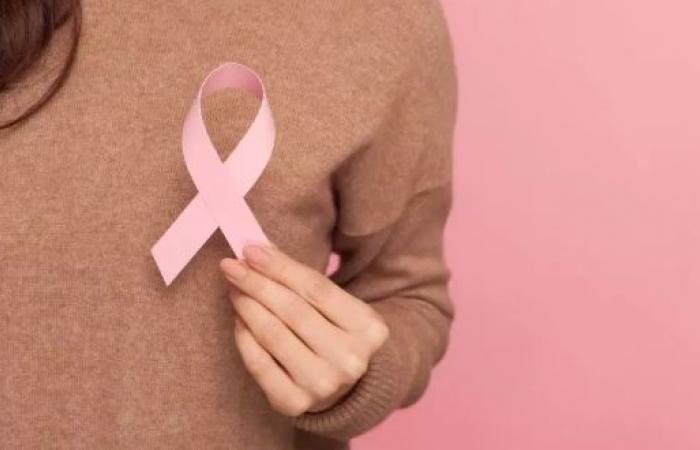Pink October. This is the name given to the global breast cancer awareness campaign, which takes place every year in October. The main objective: to promote information, early detection and support for people affected by this disease. In Mauritius, cancer is unfortunately gaining ground. And breast cancer is the first on the list of cancers that strike Mauritian women. The latest official statistics from the Ministry of Health reveal that 617 people will have contracted the disease in 2022. To fight against it, the treatments offered by the government are still proving effective.
Vimla Dabysingh: “Early detection is essential”
Vimla Dabysingh, a mother, saw her life turned upside down in 2017 when she was diagnosed with breast cancer. At the time, she was only 45 years old. Active, dynamic and entirely devoted to her family, she never imagined that her health could one day be seriously compromised. “We never think it could happen to us, until the day it knocks on our door”she says.
It all started innocuously. “I noticed a small lump in my breast, but it was painful, so I thought it was nothing serious”explains this fighter. Like many people, she mistakenly believed that breast cancer did not cause pain, and that it was perhaps a simple abscess or benign inflammation. The pain didn’t worry him too much. She continued her daily life, working in a daycare. “One day, while lifting a baby whose mother was a doctor, I felt a sharp pain, more intense than usual. From then on, I started to worry.she said. “I told the doctor about the pain and she immediately asked me to come to a room for an examination. While examining me, she noted the lump and asked if it was painful. At first she thought it might be an ingrown hair causing the pain, but there was no hair there. I had never had this kind of problem in my family, I was the first.”
Afterwards, she started having a fever and dizziness. One day, the same doctor noticed that his complexion had become darker. “I told him that my breast still hurt. She advised me to go to the hospital. When I got there, three weeks after her first exam, she found that the lump had increased in size. I was quickly operated on. At first I thought it was an abscess or a fat lump. During the operation, I even joked with the doctor so that he wouldn’t leave scars on my breast. They managed to make a small scar, because the lump measured two and a half centimeters. I was informed that they would send the lump to the lab for analysis. At that time, I didn’t know it was cancer…”
Ten days later, Vimla Daybsingh returned to the hospital for a check-up. “When I arrived, the doctor didn’t look at me, which surprised me, and then I had to go to work. His face showed a serious look, while I smiled and told him I had to leave. She asked me to wait and informed me that the specialist would see me. Hearing this, I knew something was wrong. I got my results in ten days, which was unusual. In the presence of the doctor, I said I was glad the scar was small. She asked me to keep smiling, but I felt alone. She then revealed that my tests showed that I had breast cancer. I joked, thinking my results had been swapped, because I didn’t really know what cancer was. The doctor told me she called the lab at Candos Hospital five times to confirm the diagnosis. It was a Thursday and she asked me to come with my family the following Monday.”she remembers.
At the time, she didn’t really realize she was sick. “To me, it all still seemed like a joke, because I didn’t know the seriousness of cancer. I started to cry, wondering what this meant. When we talk about cancer, we think of death, and my children were still young. I didn’t even know whether to remove my breast, I just thought I was going to die. The doctor showed me how many women were being treated for cancer in the room. When I got home, I didn’t tell anyone. My husband asked me if everything went well and I simply told him yes, without mentioning the word cancer. During my operation, my husband and children were with me. The doctor explained to me that blood had spread around my breast during the operation and told me to have the operation quickly so as not to die. It wasn’t until the following Monday that the doctor explained everything about the disease to me. He informed me that I needed to have my breast removed, and I told him no. I expressed my desire to consult a private doctor even though I did not have the necessary financial means.remembers this mother.
Treatments at the public hospital and the daily struggle
After receiving the terrible diagnosis, she finally makes an important decision: to seek treatment in hospital. “I strongly recommend people to have their treatment at the public hospital”she confides. “I had surgery and treatment at the hospital, and I must say that the care I received there was excellent.”
From the moment of his diagnosis, the medical team took charge of his treatment with professionalism. “The shock of the diagnosis was immense, but the team immediately reassured me”she remembers. Quickly operated on, she explains that the operation took place without major complications: “My surgeon made sure to leave as small a scar as possible, and that helped me a lot, both physically and psychologically.”
After the operation, chemotherapy marked the start of another battle. “It’s an extremely difficult course”because of the harshness of the treatment. “Chemo attacks not only cancer cells, but also healthy cells in the body. I felt exhausted, and after the first session, I lost my hair.” The side effects piled up, but despite this, she felt well cared for. “The healthcare team was always available, ready to listen to me and explain each step. I felt like I was being taken care of, even though public hospitals are often overwhelmed.”
Impressed by the professionalism of the doctors, but also by the responsiveness of the staff in critical situations. “At one point, the equipment needed for my treatment was broken at the hospital”she remembers. But his doctor wasted no time and quickly organized his transfer to India for further treatment. “I was able to go to Chennai for my radiotherapy, and that was crucial to my recovery.”
Despite sometimes limited resources, she affirms that the public service is capable of offering quality care: “Even with modest resources, public hospitals gave me everything I needed.” She also encourages other people to trust public hospitals: “Instead of spending a fortune in private clinics, I received the same care, or even better, in the public, and with moral support to boot.”
Beyond the physical treatments, Vimla Dabysingh recognizes that it was the moral support of her family that allowed her to hold on. “Without my husband and my children, I would never have been able to get through this ordeal. They were there, every moment, supporting me morally and encouraging me to never give up.” This unwavering support has been vital in her healing process, but she also emphasizes the importance of psychological support. “Cancer doesn’t just affect the body. It affects the mind, and without psychological support, it is difficult to cope. It’s a miracle that I’m still alive, and I believe it’s because of the mental strength I’ve been able to develop over time.”
Today, Vimla is in remission, but she remains vigilant. “I continue to get tested regularly. Some people hide their illness, but they shouldn’t. It is essential to get tested early.” She encourages everyone not to be afraid of this crucial step.
She also emphasizes the importance of awareness campaigns, such as Pink October, which help to lift the taboo surrounding cancer and educate the public about early detection. “Through education, we can help people detect the disease in time.” Today, Vimla Dabysingh leads a healthier life. “I no longer drink alcohol, I rarely eat red meat and I watch what I eat.” She made many sacrifices to keep the disease at bay, but she says she is stronger after going through this ordeal.






